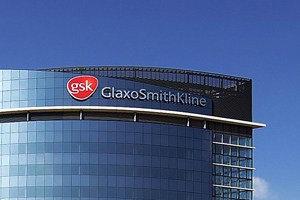 GlaxoSmithKline’s dermatology unit Stiefel has started a phase III trial of ofatumumab in a rare and life-threatening autoimmune disorder of the skin.
GlaxoSmithKline’s dermatology unit Stiefel has started a phase III trial of ofatumumab in a rare and life-threatening autoimmune disorder of the skin.
The trial in patients with pemphigus vulgaris, a serious condition in which patients develop painful blisters in the mouth and on the skin that can become infected. In severe cases, the infections can become systemic and lead to organ failure and death.
At the moment the standard treatment for pemphigus vulgaris – which affects around seven million people worldwide – is very high doses of systemic corticosteroids which themselves cause serious and sometimes life-threatening side effects.
The year-long trial will make use of a new subcutaneous formulation of ofatumumab – given once per month after an initial loading dose – that has been specifically developed for autoimmune indications. A primary objective will be to control symptoms of the disorder whilst allowing patients to be weaned off steroids.
An intravenous formulation of ofatumumab – an anti-CD20 antibody originated by Genmab – has been sold under the Arzerra trade name as a treatment for chronic lymphocytic leukaemia (CLL) since 2009 and was one of the cancer drugs due to be transferred from GSK to Novartis under an asset swap deal announced earlier this year.
Arzerra brought in lacklustre sales in the face of competition from Roche’s MabThera/Rituxan (rituximab), which has the same molecular target. The product has experienced something of a renaissance after approval as a first-line therapy for CLL and could also secure approval as a maintenance treatment, although it failed a recent trial in B cell lymphoma.
GSK has retained rights to the subcutaneous formulation and intends to develop it for a number of autoimmune diseases in collaboration with Genmab.
The company intends to start multiple phase III studies of ofatumumab in relapsing, remitting multiple sclerosis (MS) in 2015 after very positive phase II results, and says it is also intending to start trials in another rare disorder called neuromyelitis optica before the end of the year.




